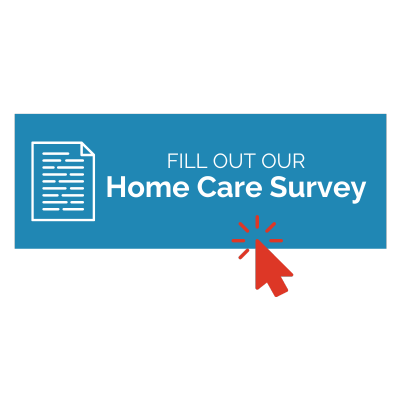Making The Transition From Hospital To Home Easy In Grand Forks, ND


There is nothing quite like the feelings that come with knowing your loved one is making the transition from hospital to home following a long stay. However, their return also comes with a certain amount of work and responsibility.
This Is No Easy Task
There is nothing easy about helping your loved one make the transition from hospital to home. To be an effective family caregiver, you can't be afraid to ask for help. You can ask your family, your loved one, or their doctor and seek out a professional caregiver.
Numbers You Need to Know
- One in five seniors will be readmitted to the hospital within 30 days.
- 75% of these readmissions can be prevented.
- 25% of seniors who are discharged to nursing homes have a higher risk of readmission within 30 days.
- The cost of readmission to the U.S. healthcare system is over $17 billion, not including those coming from urgent-care facilities and emergency rooms.
Give us a call at (701) 738-0006 to learn more!
Steps for a Successful Transition from Hospital to Home
One of the most important steps in a successful transition from hospital to home is making sure you have a copy of all medical records created during their stay in the hospital. Not only will this give you valuable information regarding the treatments and medications they received, but it will also give you information about the type of care and medications needed during their recovery. You will also need this important information should you need to contact their medical care team.
Keep in mind that you aren't the first family member to help a loved one make the transition from hospital to home. You should also know that providing this type of care will require a lot of time and energy on your part. It will also require you to study and learn about providing transitional care for an elderly loved one. To help with this, many of our Comfort Keepers caregivers have undergone highly specialized transitional care training and have plenty of experience in this field. Be sure you make use of their knowledge, as it can help you be a more effective caregiver.
Comfort Keepers Caregivers Are Ready to Help
When your loved one's Comfort Keepers caregiver arrives, they come prepared to do their part in making sure your loved one's transition from hospital to home is as safe and stress-free as possible. To this end, they offer a range of services, including:
- Personal care services (including bathing, grooming, mobility assistance, incontinence support, etc.)
- Homemaking services (decluttering, light house cleaning, laundry, dishes, meal planning, and cooking, etc.)
- Transportation to appointments and taking care of numerous errands.
- Continuous monitoring of health and maintaining communication between the family, doctors, rehabilitation specialists, etc.
- Companionship and emotional support throughout their recovery journey
Are There Specific Reasons Why Your Loved One Might Be Readmitted?
Following a senior's transition from hospital to home, the period from 30 to 180 days post-return is considered to have the highest risk of readmission. While the number of readmissions is still high, it is currently far better than it was years ago.
Here are a few of the more common causes of readmission:
- Severity and Type of Medical Condition: covering those who are in the late stages of a medical condition or suffering from a chronic condition such as heart disease or Alzheimer's.
- Secondary diagnoses: covering those patients who develop a medical condition or display severe symptoms not seen during their hospitalization.
- Medications: concerning the taking of new medication that causes adverse side effects and those who do not take their medication as instructed, resulting in adverse side effects.
- Limited Access to Appropriate Post-Hospital Care: covering those with limited transportation to their appointments, picking up needed medications, and having the daily support they need.
- Lack of Education by Medical Team: This covers those who did not receive the proper transition home care education by the patient's medical care team before they came home.
Things You Can Do to Lower The Risk of Readmission
As part of your loved one's transition from hospital to home, make sure you obtain a copy of their medical records from the hospital. They contain vital information about the treatments received while your loved one was in the hospital, along with instructions for post-discharge care. You may also need this information in the event you need to contact their medical care team.
Be a Pest
One of the most important things for you to remember is that in order to be an effective transitional caregiver, you need to ask lots of questions. Don't be afraid to make a pest out of yourself until you get the information you need. You can ask the hospital and their medical care team, along with doing your own research online. It is up to you to make sure you have contact information for their doctors, local transition care services, and local support groups.
Good Record Keeping Habits Are Crucial
In order to ensure a successful transition from hospital to home, it is crucial that you keep accurate records of their care and results. The best way to do this is to create your own version of the medical records used at the hospital. Be sure you include space for daily notes. Your loved one's Comfort Keepers caregiver can help you with this as they have plenty of experience. Your records should include:
- Contact information, including caregivers and emergency contacts.
- A record of all medications, when they need to be taken, and the correct dosage.
- A schedule that includes all family caregivers, when they will be there, and what they need to do.
- A list of appointments, what was discussed, and what, if anything, was done.
Making Your Home Safe and Healthy
Whether your loved one will be staying in your home or returning to theirs, it must be healthy and safe for them to recover. Consider taking time out to:
- Be sure the house is clean and disinfected, eliminating allergens and bacteria.
- Be sure the furniture is arranged to make room for any mobility equipment.
- Place items that are used daily within easy reach.
- Install any needed safety equipment.
- Introduce your loved one to their transitional home care provider before they are discharged.
- Create a care plan schedule that lets your loved one know who will be with them and when.
If you need more information regarding helping your loved one make the transition from hospital to home or are interested in a professional caregiver, contact Comfort Keepers of Grand Forks, ND at (701) 738-0006 and schedule a free care consultation with one of our senior care advisors.











